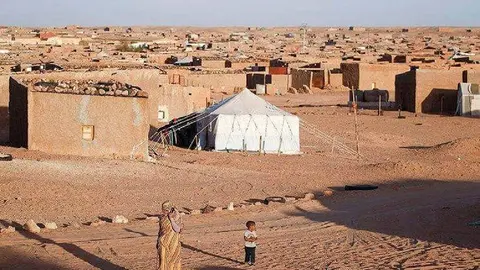The UN must convene a new negotiating table to find a solution to the Sahara conflict
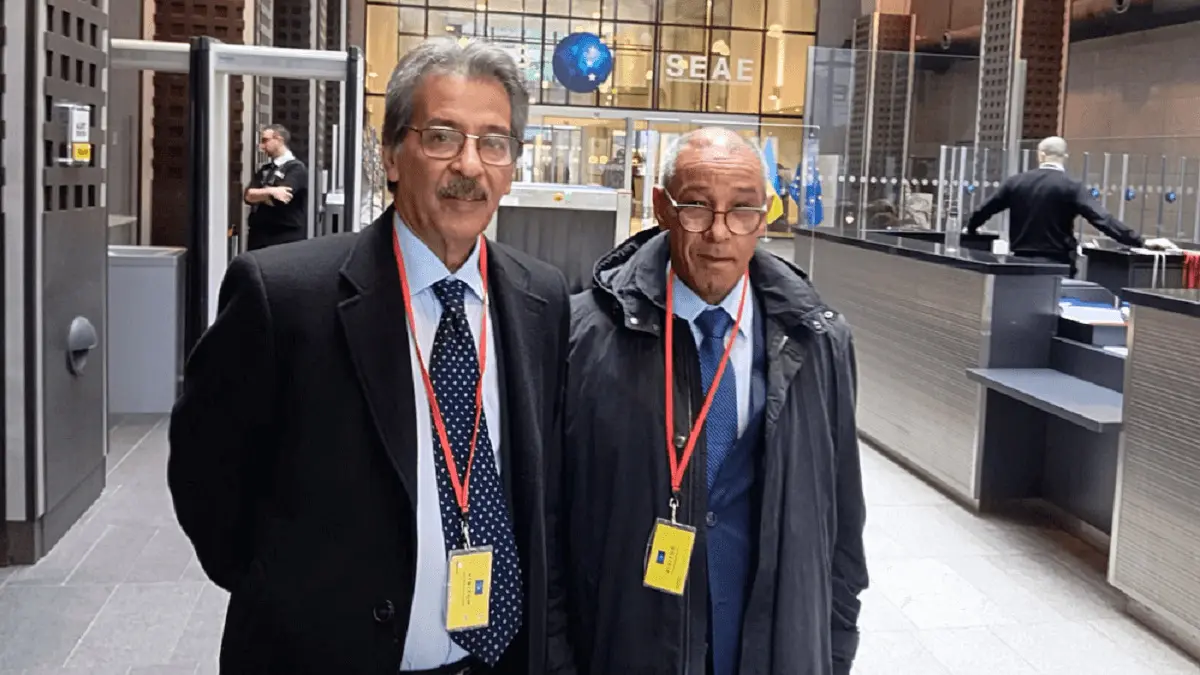
The Movement Saharawi for Peace's representativeness among the Saharawis themselves and at the international level has grown substantially in little more than three years of existence.
- International Recognition for the Movement Saharawi for Peace
- The MSP increases its representation among Saharawis
- The Polisario Front may be drawing to a close
- New UN negotiating table on the Sahara
- Repression in the Tindouf camps
- Supporters of the Movement Saharawi for Peace
- The need to put an end to the suffering in Tindouf
So much so that its entry into the Socialist International is imminent, in the absence of bureaucratic formalities, and in Brussels representatives of the MSP have been received by senior officials of the External Action Service and several MEPs.
Interest is growing in its proposals to give substance to and develop the autonomy of the Sahara under Moroccan sovereignty, in accordance with the proposal presented by Mohammed VI at the UN and which is being backed by the main countries of the world, a few days ago, France, after the United States, Spain, Germany, and many other countries which have already opened consulates in Laayoune or Dakhla.
The international conferences on the Sahara organised by the MSP in Las Palmas and Dakar have served to create a credible, serious and moderate Saharawi political alternative with concrete proposals for a peaceful and dialogue-based solution to the Sahara conflict.
In conversation with Atalayar, the first secretary of the MSP, Hach Ahmed, claims a place as representative of the Saharawis in the forthcoming peace negotiations which they hope the UN special envoy will convene as soon as possible, despite the opposition of Algeria and the Polisario Front.
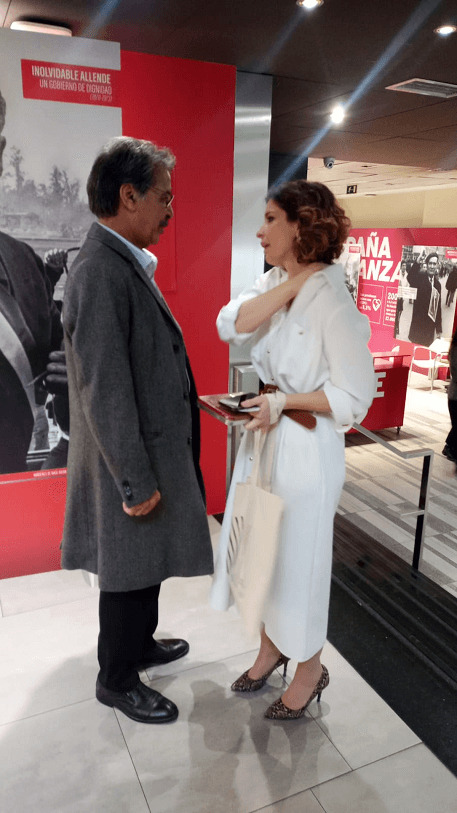
International Recognition for the Movement Saharawi for Peace
What is the current status of the MSP in the Socialist International?
In March last year we officially applied for membership, initially with observer status. We fulfilled the requirements and rules of the organisation.
There were some inconveniences in the process because the activities of the General Secretariat of the Socialist International were practically frozen during the last year.
We hope that the new coordinator, the Cameroonian Chantal Kambiwa, will speed up the process. Our presence in the Socialist International is neither exclusive nor incompatible with the participation of the Polisario.
What must be recognised is that the times of the "sole and legitimate" representative are behind us and must be adapted to the demands and standards of the 21st century.
What are the objectives of the MSP in joining this organisation?
The Socialist International is a very important international tribune, due to the presence of hundreds of progressive political parties, many of them governing in Europe, Africa and Latin America.
From the ideological and political point of view, in the MSP we assume the principles and objectives of the SI and we have affinities with many of the forces and organisations that make it up. We also believe that it is an ideal space to defend our political project and our commitment to a peaceful solution to the long-standing problem of the Sahara from a moderate point of view.
It is also a platform to promote multi-partyism in Sahrawi society, as well as to call for the abolition of totalitarianism and single-party systems, where the Polisario is one of the few representatives left on the ground.
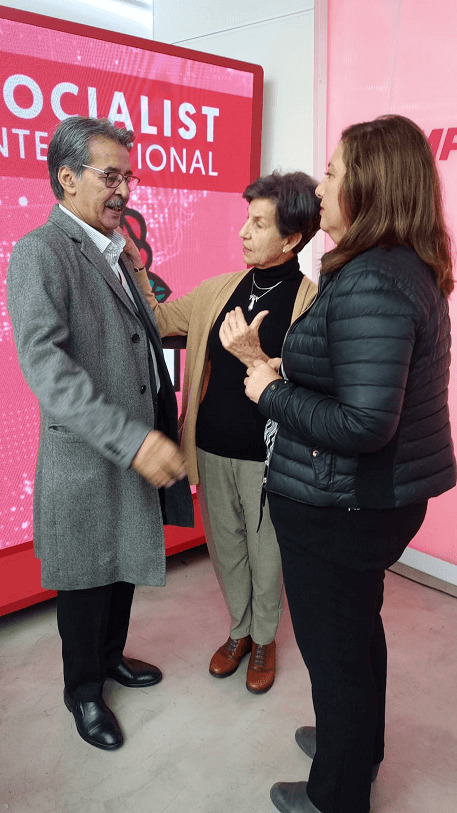
What are some of the criticisms?
What is surprising is the fact that in Spain there are still a certain class of journalists, or rather "opinion-makers", who, along with the occasional digital media outlet, and from a single, monolithic point of view, talk about democracy, freedom and human rights, while at the same time denying another part of the Saharawi people the right to claim those same rights.
Lately, the attacks against our movement have intensified, making the Polisario's thesis their own and trying to silence critical or opposing voices with unusual virulence through their corresponding media loudspeakers.
It seems that there are certain sectors and characters in Spain obsessed with Morocco, apparently they have not yet overcome the traumas of the Rif War and the Civil War.
They want the Sahrawis to continue waging war against Morocco, even if they end up extinct like the Australian aborigines or the redskins in North America. They care little that young Sahrawis are hunted down like flies every day by Moroccan drones, or that Sahrawi women, elderly people and children languish as refugees in a hellish desert living on charity.
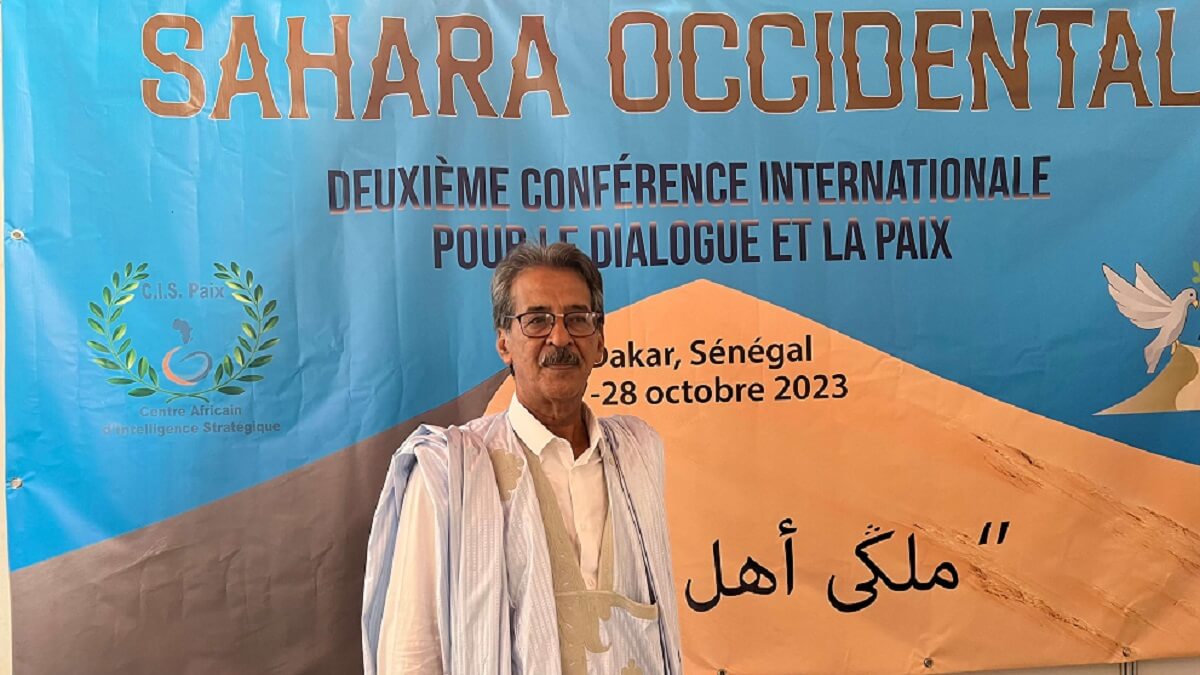
Are some sectors still stuck in the past and unable to accept the new reality?
Some members of the Spanish solidarity movement, where survivors of the extreme left, ex-communists and republicans nostalgic for the Third International are entrenched, are also moving along these lines.
They meddle in the internal Sahrawi debate by aligning themselves with the old guard that has led the Polisario since the Cold War era. They defend their immobilism tooth and nail, just as they sympathise with Sandinismo in Nicaragua or the Hamas radicals in Palestine.
They are uncomfortable with the emergence of voices for democracy and freedom of expression and for an honourable compromise solution without apology or mercy, as was the case with the last republican leaders in Spain.
They are a myriad of committees, associations and solidarity groups that survive and depend on projects and humanitarian aid from central, regional or municipal governments.
They feed the Polisario's radicalism and rant at those of us who choose the path of pragmatism, without caring that the misfortune and suffering of the Saharawis will last until the end of time.
The MSP increases its representation among Saharawis
Is the entry into the SI a demonstration of the representativeness and relevance of the MSP among the Saharawis?
Joining the Socialist International gives visibility to the MSP and its political project. The representativeness of a political force in the 21st century is based on the exercise of democracy and, consequently, on the ballot box. The era of single parties and armed groups is over.
We Saharawis are where we are and we suffer the unspeakable as a consequence of many puerile decisions and outbursts, imitating revolutionary models or projects that have no place in our society or in our hemisphere.
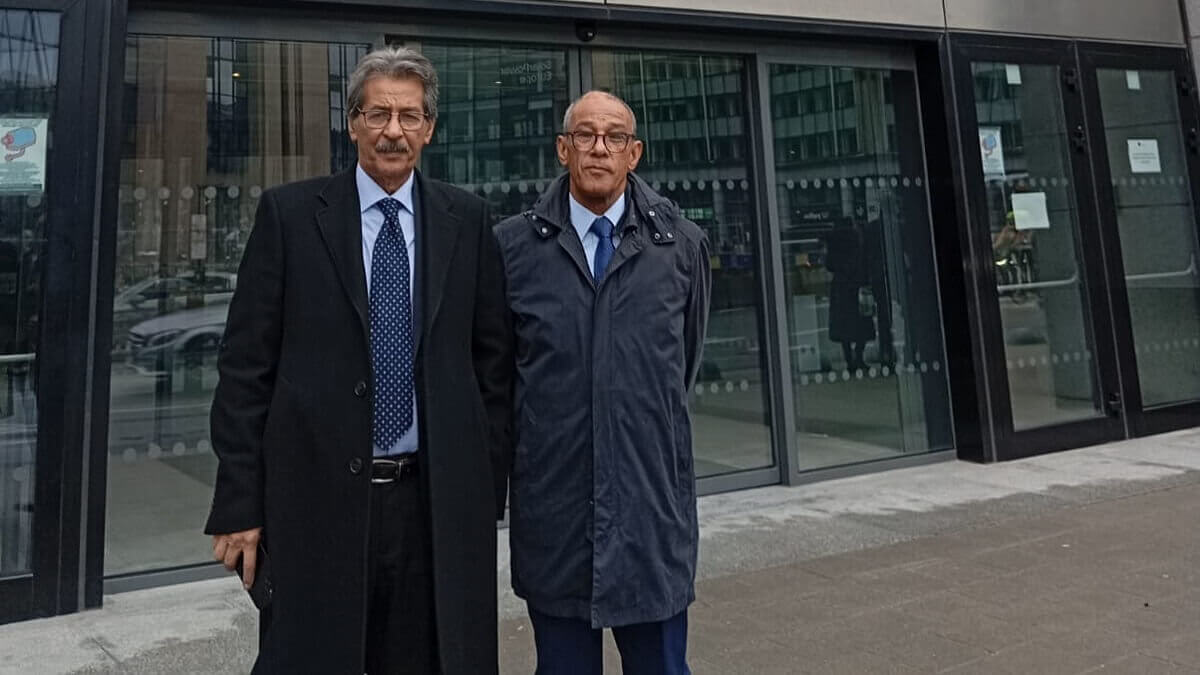
Another step towards international recognition. In Brussels, you were received by senior officials of the European Union's External Action Service and several MEPs, what issues did you discuss?
The talks between the two sides focused on the situation in Western Sahara, the current state of the UN peace process and the proposed settlement of the MSP. We insisted on the need for the European Union and its External Service to encourage Staffan de Mistura, the UN Secretary General's Special Envoy for Western Sahara, to overcome the current obstacles and bring everyone to the round table in Geneva.
In this respect, the MSP recalled that its proposal for a solution, presented at the Dakar Conference last October, is the most suitable compromise formula for progress towards an honourable solution and the one that generates hope among the Saharawis after half a century of exile, war and suffering.
The priority now is to break the deadlock and avoid another failure of the UN mediators. In this regard, we express our willingness to work with Staffan de Mistura to move towards an agreement.
The Polisario Front may be drawing to a close
Is the Polisario no longer the sole representative of the Saharawis? It has admitted to committing crimes in the Tindouf camps.
Much has happened since 1973. The consensus forced on Polisario's representativeness in those complex and grey circumstances has crumbled. The passing of time, the events following the fall of the Berlin Wall, the technological revolution.
All this added to the mismanagement of the liberation process, from the last days of Francoism to the current peace process under the auspices of the UN. On the other hand, we find ourselves with the discovery of dark spaces in the Polisario's trajectory.
The revelation of excesses and war crimes committed against hundreds of Sahrawis in secret prisons has shattered the halo or romantic legend that Polisario carried with it in its early days. Thousands of military personnel, civil servants and not a few leaders, some of them with the credentials of "founders", abandoned the cause and settled in the territory or in Europe.
Could the Polisario's era be coming to an end?
The Polisario no longer enjoys unanimity, even among the small refugee population dependent on charity and humanitarian aid. At this rate, the progressive erosion of the Polisario could lead to its collapse or even its disappearance.
In this hypothetical scenario, a new, more pragmatic and moderate Sahrawi political force should fill the vacuum and lead the Sahrawis to a successful outcome. History will judge and place everyone in their rightful place.

New UN negotiating table on the Sahara
They call on the UN to include the MSP in the forthcoming negotiations to resolve the conflict through their legitimate representation among the Saharawis.
There is generalised weariness among the Saharawis due to the prolongation of the problem and the inability of the international community to find a solution.
Thirty years have passed since the UN took over, and the dossier has already seen five secretaries-general and more than a dozen envoys or personal representatives of the secretary-general. It is a 'cursed' problem for mediators. People have lost faith in the mediation process, but also in the Polisario's management.
What could the MSP contribute?
The MSP, because of its establishment and knowledge of the reality, believes it can contribute by proposing, from a moderate and realistic approach, a compromise formula to get our people out of the "black hole" in which they have been trapped since the emergence of the Polisario under the extremist guidelines and ideas of Gaddafi, back in the seventies of the last century.
Our plan for a solution was set out in detail at the Dakar Conference at the end of last year.
Do you expect the UN special envoy and whoever else is responsible to take that decision?
We expected the current mediator, Stefan de Mistura, to draw conclusions from the failure of the ten or so mediators who preceded him, exploring other paths that would help to break out of this eternal vicious circle. For example, by changing the format and extending the roundtable to other local actors representing society, including the MSP, tribal notables and others.
Following your controversial trip to South Africa, we re-emphasise this approach, reiterating our readiness to work together to break the impasse and help you regain the trust of the parties. In any case, however, any formula of understanding must be duly guaranteed by the international community and ratified in a plebiscite.
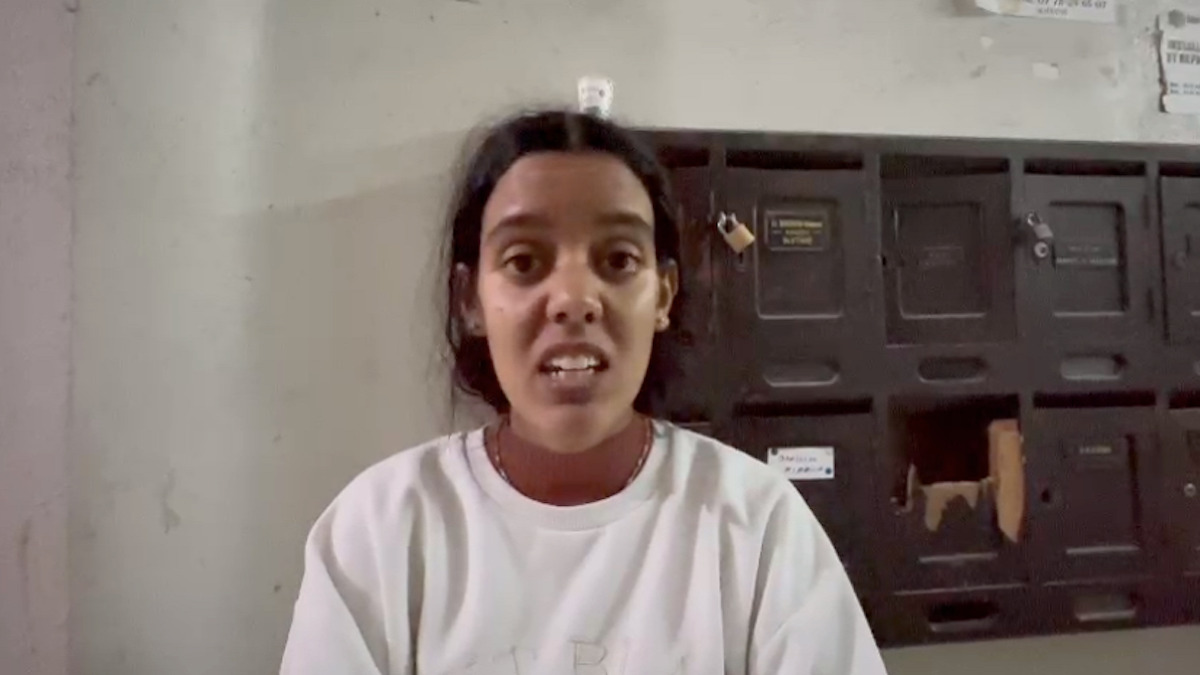
Repression in the Tindouf camps
Do you reject violence and the use of arms as the Polisario does?
Of course, without any doubt. We believe that the path of peace, even if it is disadvantageous, is much better than war. There is no Sahrawi family that has not lost one or more of its members. It makes no sense to continue on this path.
This is a small population immersed in an impossible asymmetric war. It therefore makes sense to take advantage of the interest still shown by the international community and work resolutely towards a compromise solution.
The correlation of forces on the ground is what it is. After El Guerguerat's mistake and the introduction of new technologies such as drones, the Polisario finds itself cornered in an unenviable position. It no longer has a presence in any part of the territory and its offensive capacity has been substantially reduced.
You have denounced the repression suffered by the Saharawi population in the Tindouf camps by the Polisario. Is this situation untenable for these thousands of trapped people?
The Polisario has had a black legend since the 1970s, with a scandalous record, not only in terms of the number of innocent victims, but also in terms of the methods of repression. Hundreds of Sahrawis succumbed in Rashid's secret prison, and hundreds more emerged with indelible physical and psychological stigmata.
Despite the scale of the horror and the involvement of top-level leaders, there were no trials, no gestures of reconciliation, and no moral or material compensation for the victims and their families. Repression is therefore part of Polisario's DNA. It is not surprising that there are occasional flare-ups.
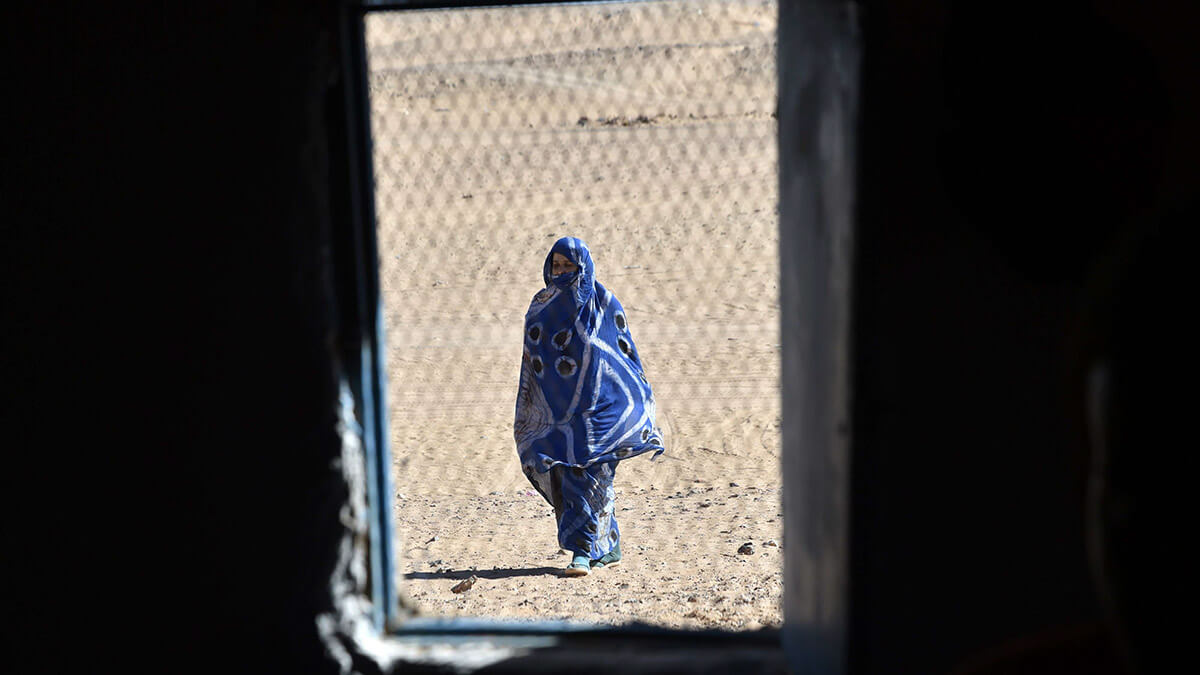
Spain, the US and the UK have denounced the terrorist risk and recommended against travel to Tindouf.
The proximity of the Sahel and the growing activity of armed groups and jihadists are a real danger not only for foreign visitors, but also for the local population.
It is a highly irresponsible exercise on the part of the Polisario to disregard these recommendations and to publicly take offence by using conspiracy theories, just for the sake of having its image damaged.
They are recklessly and dangerously putting their personal interests before the corresponding precautions that should be taken to avoid any tragic outcome with a real possibility of casualties. If these three countries have made these recommendations, there is a reason for it.
Do you consider the African initiative to strengthen the Atlantic seaboard by including the Sahara, so that the Sahel countries can improve their development and trade with access to the Atlantic, to be positive?
The premise for the Sahara to be included in regional development and integration projects is a peaceful, lasting solution with international guarantees. There is great economic potential, which, together with its geographical position, could turn the Sahara into a major pole of development in North Africa.
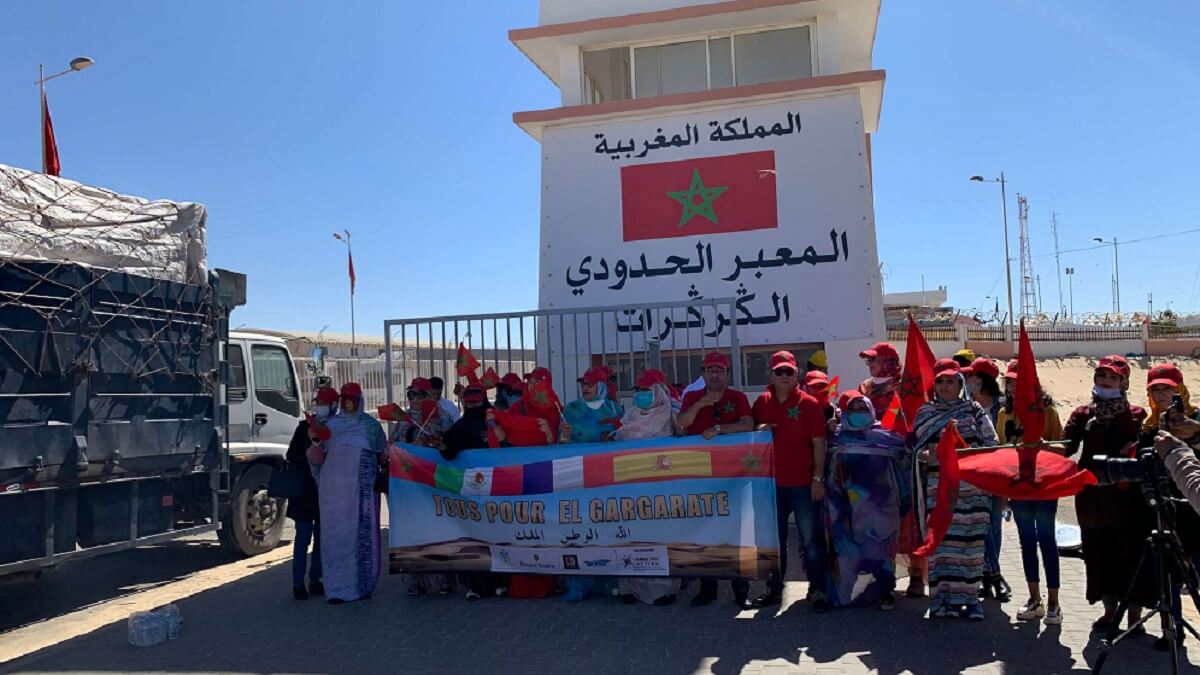
Supporters of the Movement Saharawi for Peace
How did you organise the peace and dialogue conferences on the Sahara in Las Palmas and Dakar and with what support?
We have organised two conferences, one in the Canary Islands in September 2022 and the last one in Dakar. In Las Palmas we relied on local contributions and friends from the Canaries who offered us symbolic prices for accommodation.
Most of the activists paid for their own plane tickets. For Dakar our activists travelled by land in their own vehicles. For the rest of the guests we got the help of private contributions, businessmen from the territory and beyond.
We have the experience accumulated during the work for the Polisario and believe me, there is no comparison with the exorbitant expenses of an EUCOCO, as for example one of the last ones organised by 'Mister Polisario' in the Canary Islands.
What relationship does the MSP have with the Moroccan government and its secret services?
Anyone who has at any time made trouble or protested against the Polisario and its practices is automatically assigned the cliché of "traitor" or agent of the Moroccan, Spanish, French or Bangladeshi secret services.
This is nothing new, many of the innocent people who died in Rashid prison were accused, without any proof, of being agents of Morocco, Mauritania, France or even Spain. Sometimes the victim was an innocent Bedouin who never had any contacts other than his camels or goats.
In our case, if there had been any contact or understanding with the Moroccan authorities, he would have personally landed in Rabat, like all the Polisario leaders who abandoned him.
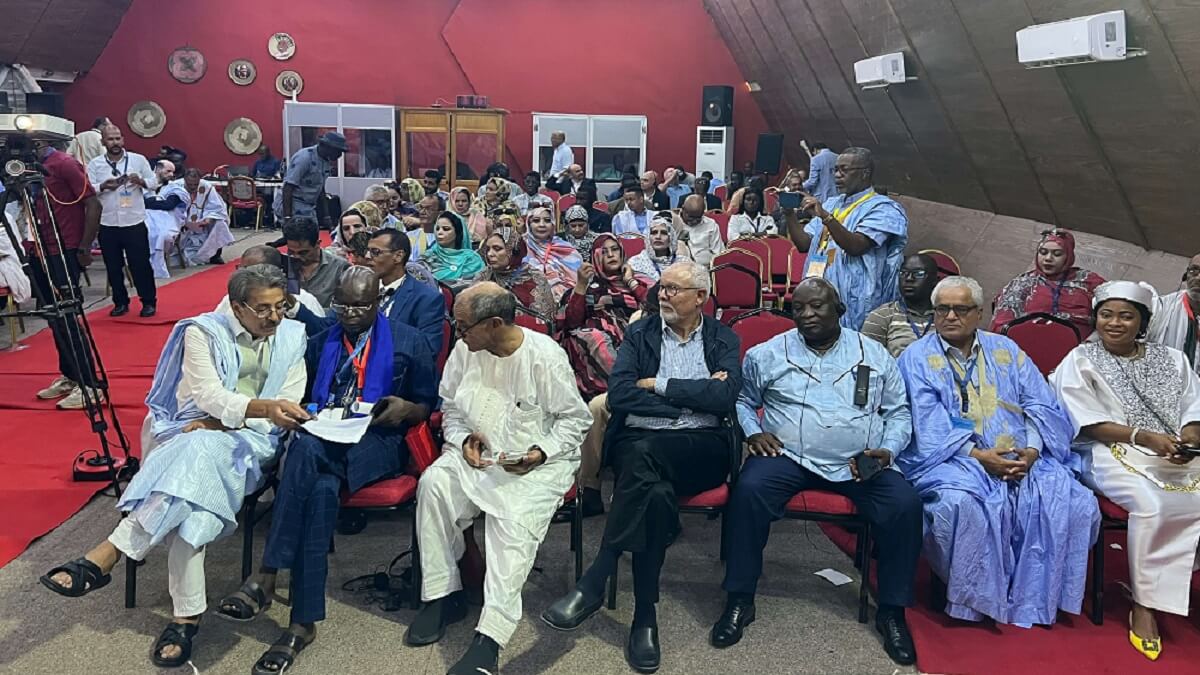
Your political and personal trajectory inside and outside the Polisario is well known.
My opposition to the Polisario dates back to 2012, when I resigned as Minister of Cooperation. Two years later, in 2014, I absented myself from the 14th Congress and publicly called for a change of course to avoid a fatal outcome.
From 2016 to 2020, together with other colleagues, we tried to promote an internal debate, which proved impossible. I could have kept quiet and continued as one of the Polisario leadership, but for reasons of political and moral coherence I chose to try, along with hundreds of genuine Sahrawis, women and men, to open horizons of hope for a people punished by historical accidents and the immaturity and irresponsibility of its leaders.
It is certainly not easy, but I feel satisfied with myself.
What is the truth of the report that some media claim the CNI prepared in relation to the MSP?
As is well known, an article was recently published in a well-known Spanish media, based on an alleged CNI report, which described the MSP as a "front organisation for the Moroccan secret services".
Although reliable CNI sources denied the existence of such a report as such, some journalists known for their activism in favour of the Polisario or Spanish extreme left-wing parties sympathetic to them, use it as a source in almost all their publications in an almost dogmatic manner.
To these must be added the occasional well-known "journalist" whose career is based on a permanent settling of scores with the Moroccan authorities. All of them, whenever they have the opportunity, refer to the aforementioned report in an attempt to undermine the image of the MSP or anyone mentioned in it.
In their articles, they do not even check the information they publish, they directly allude to the report with an accusing finger as if it were irrefutable proof, thus trying to undermine the credibility of those mentioned in favour of their protégés (Polisario), and they do so with unusual frequency.
In short, once the stain (the report) has been placed, despite its dubious veracity, it is difficult to remove the stigma. And they know it, and they "play" with it. In view of these facts, we can conclude that this is a militant and subjective journalism, which uses subterfuges far removed from the basic respect for any code of ethics or journalistic deontology.
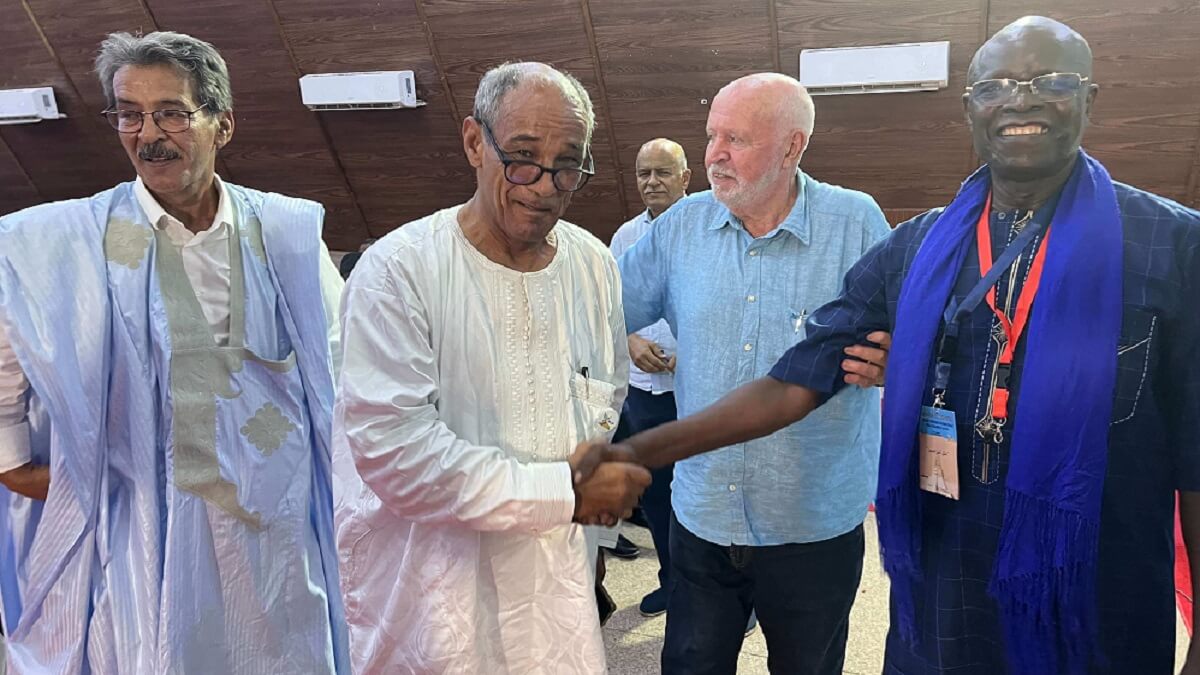
Do you reject this alleged CNI report?
If one reads the alleged report, its authorship is not worthy of a respectable service like the CNI, as it seems to be a simple compilation of names or a 'press summary' from the newspaper archives, of people who once publicly criticised the Polisario or lodged complaints against it.
A mish-mash of names that came under the heading of "operation directed by the Moroccan intelligence services" with the supposed aim of bursting the secret operation concerning the admission and hospitalisation of the Polisario leader in Logroño in April 2021, which caused an unprecedented diplomatic crisis between Spain and Morocco.
As this cocktail of names on a piece of paper allegedly bears the initials of the CNI, these journalists can use it as they please, giving it a status that it clearly lacks. If what they call a report exists, it is not really a report, nor would a trainee intern do anything so ordinary as to call it a "report".
But for some it is enough to carry out their dark intentions and do as much damage as they can to further their own and other people's interests. The last of the "triad" to speak out was not content with repeating the same "matrix of opinion", but also engaged in clearly punishable slander. We will consider the possibility of a lawsuit.

The need to put an end to the suffering in Tindouf
Why do you support the Moroccan proposal, to be negotiated at the UN, for a broad autonomy for the Sahara under Moroccan sovereignty?
Because the road to war is impossible after fifty years. The autonomy proposal is a concession by Morocco thanks to the sacrifices of the Saharawis. We must value it as such, and try to extend and expand it so that it reaches a point of convergence between the rights of some and the interests of others. This is what common sense dictates, not unrealistically fantastic proclamations.
In Las Palmas and Dakar, you took a transcendental step: what needs to be negotiated with Morocco for this autonomy to be real and effective.
Our proposed solution facilitates and clears the way for a serious settlement with guarantees. It is worthwhile for the prudent and wise people in the Polisario leadership to pay attention to it while there is still time. The message is also addressed to the Moroccan negotiating team.
Algeria and the Polisario refuse and go against the reality already enjoyed by 80% of the Saharawis in Laayoune, Dakhla, Guelmin or Smara.
The reality is that the problem remains unresolved and until a definitive agreement with international guarantees is reached, everything is relative. This is the concern of the MSP.
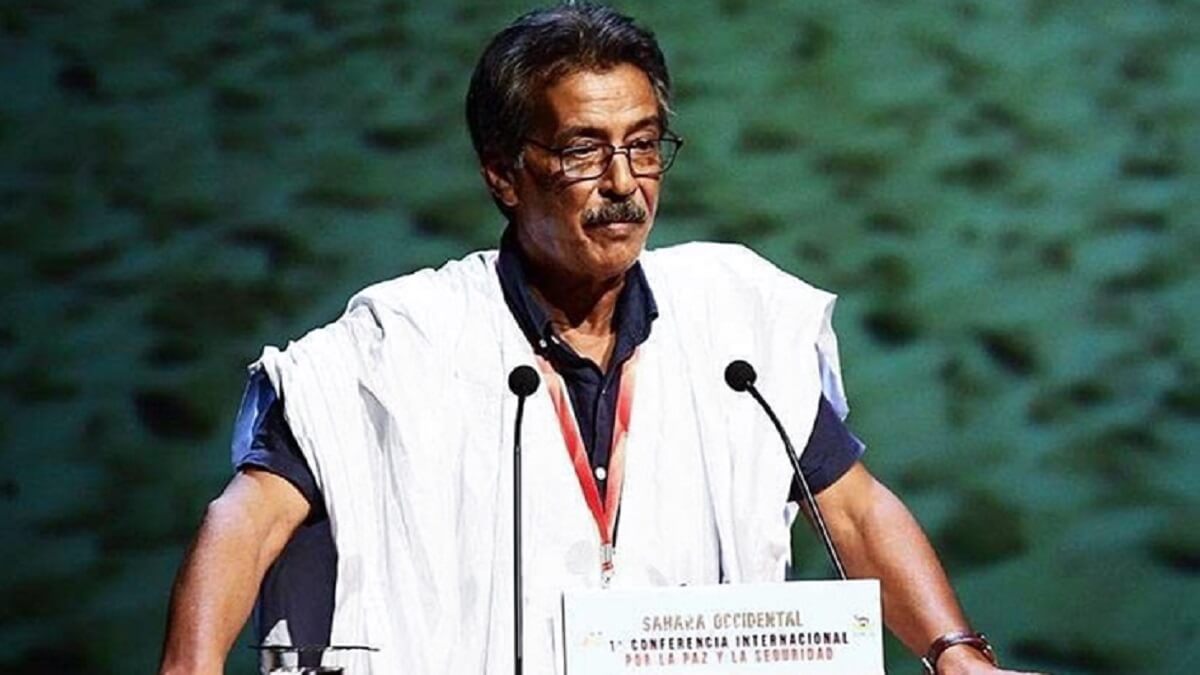
The latest international movements in support of autonomy for the Sahara under Moroccan sovereignty, such as France, make it optimistic, while the UN envoy's trip to South Africa complicates the situation.
Positions and gestures in diplomacy are often a snapshot at a precise moment in time, and appear and disappear depending on the circumstances. They resemble desert dunes. The experience of three decades in the hands of the UN makes me pessimistic.
One comes to the conclusion that the solution lies in the hands of the Saharawis and the Moroccans alone. I am more confident in the path of direct dialogue, which has been tried in the past. The MSP believes that this is the way forward. Unfortunately, UN intervention has become part of the problem and not part of the solution.
What would you say to the Spanish government and PP officials about the MSP?
That the Saharawis have matured and that through the MSP they have introduced a turning point for the peaceful resolution of the thorny problem that Spain has been dragging along since the democratic transition and which, fifty years later, continues to disturb stability in its area of influence.
More specifically, and in relation to the Popular Party, we all know by now that if it governs, it will not back down from its position of recognising autonomy. Just as Joe Biden did not rectify Trump's stance, it does not take a clairvoyant to know that if the PP comes to government it will do the same.
So it would be a good idea for them to stop using this issue as a domestic political issue by "swaying" their rivals on account of their position, and try to row in the same direction to help resolve this dispute. Almost half a century of conflict is more than enough.



